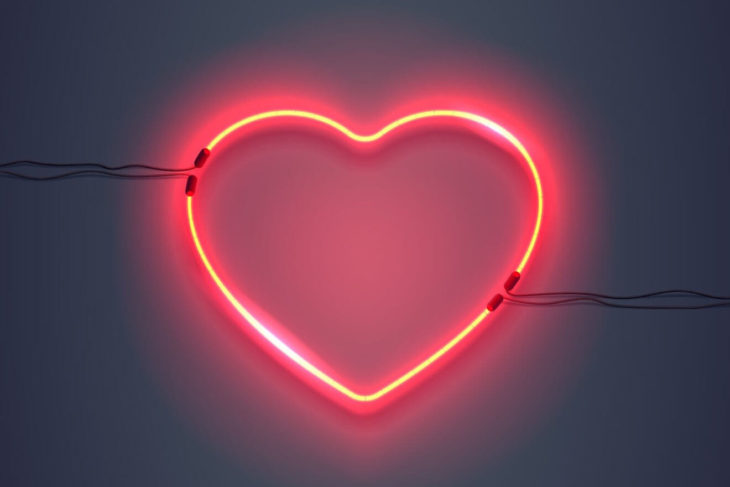Coming out of the closet is like having a gay bat mitzvah. It’s a rite of passage during an awkward era of your life full of questionable fashion choices and uncomfortable self-discovery until you say some things in front of a bunch of people and suddenly find yourself with a new status in society.
Your coming out is a thing that happened to you, and then it’s a story, and then it’s a magic music box that you take out and play at parties to summon and connect to other queer people.
In any lull in conversation, from first dates to new acquaintances, someone will throw the question out like a lifesaver: “So, how did you come out?” I don’t get it. For me, it’s just like, “Which time?”.
I came out because I got caught. Some friends saw me kiss a girl in the stairwell, my mom read some computer chat logs, and my sister knew because the only boy I ever had a crush on was Aaron Carter. After that, everyone else came out for me. My sister told my dad, my dad told my extended family at a passover seder, and my friends told every boy that ever tried to hit on me. That’s my coming out, but it’s an ongoing process. It’s gone on for way too long, and it still doesn’t feel over.

Source: Talkspace
Maybe I’m the only one that feels like they got tricked by this, but I thought that after a year or two of awkwardness, my sexuality would just be accepted as a universal truth: the sun rises every day, love hurts, and I’m really, really gay.
Last Thanksgiving, I went back home for the holidays and, like the rest of my age bracket, visited the local bars that I used to get into with fake IDs and awkwardly congregated with former classmates like an unplanned high school reunion. While reminiscing about college nightlife, I mentioned how I never really went to fratty college bars and spent most of my nights at gay bars. A guy I had just met that night said, “Why did you go to so many gay bars?” I responded with, “Uh, well, because I’m gay,” and then he said, “Oh.” and then the air went a little flat as I searched for any indication of disdain, surprise, judgement, acceptance, or disappointment.
I’ve been out and gay for so long that my coming out feels like a Vine video, a forever loop of “I’m a huge lesbian” every six seconds. You cannot miss it. And if you do, you’ll catch it again almost immediately after when you see how well I can pull off a hat, make out of the blue references to episodes of The L Word or Buffy the Vampire Slayer, or perpetually push the gay agenda.
I’ve been out and gay for so long, but every single time that I have to tell someone new, I always feel uneasy and catch myself wondering, “Is that okay?”.
Every time I tell someone I’m gay, I feel a little reluctance. When people ask me what I write about and I respond with, “sex, modern dating, and, uh, gay stuff.” Or when I slowly stop using gender neutral pronouns around my coworkers (finally giving up at the company holiday party and then proceeded to show off pictures of my ex-girlfriend’s dogs because, of course.). Or every time I have to correct someone that automatically assumed that I was straight.
It’s not the fear of not being accepted that drives this uneasiness. People will seldom communicate their distaste for all things gay to your face, unless it’s some guy at the bar that is drunk and aggressive and, maybe, sometimes, a tiny southern woman with a thing for church. A lot of times, it’s the silent judgement, negative or positive or neutral. When I mention a girlfriend or tell someone that I am gay, I am asserting the kind of person I have sex with in casual conversation. A straight woman can reference her husband or boyfriend and no one thinks twice about it. But, if I do something similar, there is a shift in the atmosphere and an internal thought process where someone is now establishing in their mind that I date women. The reaction could span from an “Oh, really?” to a “Duh”, but it’s weird to perpetually have to plant those seeds and watch that connection be made.

Source: datingschanged
There is this way that people perceive you and then you have to correct them and they have to adjust accordingly in the most subtle way possible.
Coming out all the time is also a great way to watch people disappoint you. There are things that you get tired of hearing like “But, you’re so pretty!” or “Wow, you don’t look gay!” or “Are you sure you’re gay?” I know this comes from good intentions, but it’s so deeply rooted in terrible stereotypes and is honestly really offensive. It’s cool that you don’t have a problem with gay people, but I don’t want to be an exception to your outdated stereotype.
I want to believe that I can flit through life without ever having to declare my sexuality to people. I don’t want to lead with “I’m gay!” since it is only a fraction of my identity. But, the closest I can get to that is through a pair of Timberlands and a snapback.
It gets far more complicated for the people who aren’t a 6 on the Kinsey Scale. Anybody that identifies as sapiosexual, bisexual, queer, fluid, pansexual, or, you know, as a straight-up question mark can be assumed to be anything, either gay or straight, and that person making assumptions is always at least a little right.
I imagine that if I ever have a long-term partner, I will get to some point where I will have to come out to people far less because I will have some megababe with me at parties and bars. This isn’t really the case if you identify as anything in between the opposite ends of the spectrum. When you settle on one side or the other, the people around you start to think you are this thing or that. Do you correct them or just let the assumptions go? Is neglecting to clarify a betrayal to the rest of the fluid identities? Is it contributing to bisexual erasure? And is it even your job to combat the stereotypes and lack of understanding around fluid identities?
On the other hand, will people interpret your clarification as an invitation? Will your partner feel betrayed by you constantly correcting someone who calls you gay or straight? (If they do, you should probably break up with them.) Is it an unnecessary clarification that makes everybody feel uncomfortable? Is there a point to establishing your sexual identity to somebody that it doesn’t affect? Some of my fluid friends don’t think there is a point or just don’t want to deal with the explanation. On the other hand, some of them feel disingenuous if they don’t correct a person’s assumptions.

Source: Pixabay
We, as a society, are getting better and being less presumptuous or heteronormative. We’re getting in the habit of saying partner instead of assuming a gender or being less reactive when someone tells you their sexuality, but we’re nowhere near being able to properly navigate those other situations. We’re so used to the gender of a partner defining the person’s sexuality that our minds haven’t adjusted to sexuality that isn’t so black and white. Whether it is in the gay community or the straight community, we advocate a lot of acceptance and inclusivity, but there isn’t enough dialogue over the microaggressions towards more fluid sexualities.
I’m sure there will be a time where we don’t have to constantly come out to people. We won’t always have to think about how to tactfully come out in a workplace or work our significant other’s gender into casual conversation. Until then, I will continue being humbled by flashbacks to my 13 year old self, finally cementing my sexuality as an aspect of my life, and feel grateful that I can spend more time correcting people than I have to do hiding it.
Original by Morgan Cohn
